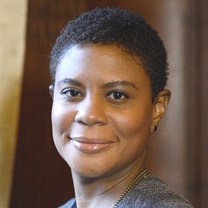 Alondra Nelson, a professor of sociology and dean of social science at Columbia University in New York City, will be the next president of the Social Science Research Council. Founded in 1923, the Social Science Research Council is an independent, international, nonprofit organization which supports research and development of social scientists. Professor Nelson will serve a five-year term as president of the organization, beginning September 1.
Alondra Nelson, a professor of sociology and dean of social science at Columbia University in New York City, will be the next president of the Social Science Research Council. Founded in 1923, the Social Science Research Council is an independent, international, nonprofit organization which supports research and development of social scientists. Professor Nelson will serve a five-year term as president of the organization, beginning September 1.
Professor Nelson joined the faculty at Columbia University in 2009 after teaching at Yale University. She is the author of the award-winning book Body and Soul: The Black Panther Party and the Fight Against Medical Discrimination (University of Minnesota Press, 2011) and a co-editor of Genetics and the Unsettled Past: The Collision of DNA, Race, and History (Rutgers University Press, 2012) and Technicolor: Race, Technology, and Everyday Life (New York University Press, 2001). Her most recent book is The Social Life of DNA: Race, Reparations, and Reconciliation After the Genome (Beacon Press, 2016).
Professor Nelson is a magna cum laude graduate of the University of California at San Diego, where she was elected to Phi Beta Kappa. She holds a doctoral degree in American studies from New York University.

